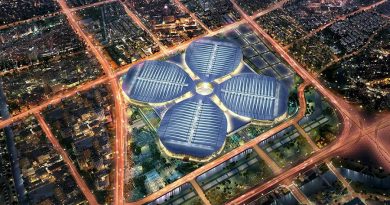Hong Kong’s Umbrella Movement, a year on: Reflections on News Media and Democracy
In an era when we are surrounded by digital and spectacular images in the news, how many of us are willing to unpack what was really going on behind the spectacle of the Umbrella Movement in Hong Kong last year? Apart from consuming the “beauty of solidarity”, what else did the Umbrella Movement reveal about news media and democracy?
Some Very Brief Background
In the mid-19th century, when the Qing Empire decided “we want no more opium from the British Empire”, two Opium Wars out broke. The Chinese lost. As a result, Hong Kong Island and the Kowloon Peninsula were given to Britain as compensation. In 1889, Britain obtained a 99-year lease for both territories; and there, the British Hong Kong colony was founded. Under the British governorship, Hong Kong went through a series of dramatic economic and infrastructural developments and eventually becoming an internationally known cosmopolitan city.
On December the 18th 1984, the Sino-British Joint Declaration was signed by both countries as an agreement to transfer Hong Kong’s sovereignty to the People’s Republic of China on July the 1st 1997. The declaration states Hong Kong must retain its autonomous status as a Special Administrative Region within China, alongside its free-market economy, independent law system (based on the foundation of English law), and policy-making apart from foreign diplomacy and military defence.
Historically, governors were appointed by the British in Hong Kong and although the government included some non-official Chinese Legislative members, the top decision makers were always British. On July the 18th 1984, the British government published the Green Paper: the Further Development of representative Government in Hong Kong, in order to carry out a democratic reform in the region. For the first time, local Hong Kong Chinese were involved in politics officially and different parties were also formed. This political reform introduced a certain democracy to the Hong Kong political system which included elections for local councils, municipal councils and the Legislative Council. But these measures raised a major issue: the decision on the next Chief Executive of Hong Kong, and how such person is elected (selected) remained an open to interpretation due to its unspecific explanation within the Basic Law. This unresolved debate and the concern over democracy in Hong Kong was the main motivation behind the Umbrella Movement.
The Umbrella Movement is a general term for a social movement began on the 28th of September 2014, as a protest for a universal suffrage for Hong Kong’s future general elections. The protest started as boycott, blocking and major roads, and eventually it developed into a large occupation with tents over several areas in the region. The occupation lasted for almost two months, and the clearance by the police of did not take place until late November.
The main participants include Scholarism, Hong Kong Federation of Students, Occupy Central with Love and Peace and the Democratic Party. Although the mutual protest ethos was a demand for a more democratic election system (a proposal of every Hong Kong citizen should be able to nominate the candidates for future voting, instead of a committee that decides who the candidates are for the public election), each organisation and its members all have further different political demands and views. These include: the independence of Hong Kong, anti-mainland China, anti-Communist Party of China and the resignation of the current Chief Executive.
The Umbrella Movement was not an organic movement, but rather, a combination of different organisation’s protest events, while each hoped to incorporate more participants through others’ activities and therefore had to work alongside each other. Apart from all these major participants, a local newspaper in fact played a subtle but central role as part of the movement.
When News Turns Political
Apple Daily is a Hong Kong tabloid newspaper, which has been pro-democratic and anti-Beijing since 1995. It is known for its criticism of CCP, and those at the local government who align themselves with it. Apart from its political position, the newspaper is also known as the “people’s paper”, as it not only uses less formal and more down to earth Cantonese-slang language in its writing, it also includes popular culture content in its daily publication. Most importantly, its popularity is also through its colour printing and a habit of including large size spectacular photographs.
With all of the large scale democratic protests in Hong Kong so far, Apple Daily has explicitly shown sympathy to the participants and condemned opposition. Similar reporting patterns are true of actions during the Umbrella Movement.
Emotional photographs continued to be published depicting the movement in its daily publication alongside carefully selected language as encouragement. Different slogans such as “Democracy for Hong Kong”, “Democracy Occupies Hong Kong”, “Get up, we do not want to be salves!” and “Freedom!” continued to be the front page headlines, alongside full page of spectacle photographs throughout the movement. A year later, it is not a surprise that the newspaper’s website hosted an anniversary page for this specific event. Apart from other social media, Apple Daily was the main news communication for the participants, the home for the movement’s glorious sensations, while other pro-Beijing newspapers were considered as the “enemy” due to unpleasant language within the context.
The communicational advantages that Apple Daily has secures power over the local politics. For example, the Democratic Party to some extent relies on the popularity of Apple Daily, in a hope to gain more votes for their seats in the government. A political weakness like the unresolved ambiguity for Hong Kong’s general election has become a point to articulate sentimental redirection. Such possibility appeals to multiple parties, for their different purposes and agenda. I remain sceptical about party politics, there is no such thing as a “purely for the people” kind of good will. In my opinion, any “common interest” is normally and only used as an instrument for a party or organisation to gain popularity. The Democratic Party in Hong Kong, which was formed under the political reform during the 1990s, has a track record to use the ambiguous political weakness as a “common interest” to promote liberalism within their ethos. A general fear among the public after the 1997 handover in Hong Kong concerned the CCP’s interference over the region’s local politics. The ambiguity about how a Chief Executive will be elected in the Basic Law therefore becomes a crucial point for an ideological intervention. The on-going debate over the general election in Hong Kong deserves another separate and more in depth discussion, alongside its specific colonial history.
While Apple Daily has the resources and capability to support large-scale social movement such as the Umbrella Movement through its daily news communication, the Party has no choice but to be on the same line. Jimmy Lai, the owner of the newspaper denied he sponsored the occupation in an interview while documents which suggested he did were found by journalists. However, although the Party is pro-democratic, they do not necessarily want to become too extreme to lose a possible negotiation token with the CCP.
While Apple Daily continued to over-dramatize and glamourize the movement, it put the Party in an awkward position, and it also put its future public image in risks among the majority (if the movement fails). A research seminar delivered by our visiting scholar Niko Hatakka highlighted a similar issue in the context of a Finnish populist party trying to utilize the resources of an online network of anti-immigration activists. Hatakka’s research points out that in this particular case, the adopting of a group of online activists made it increasingly difficult for the party leadership to control the party’s public image. In the case of Hong Kong, The Democratic Party has indeed lost some of its public support since, due to its relationship (by decision) with the social movement, subtly incited and supported by the local newspaper Apple Daily, in especially some of the citizen has begun to reflect on the activity. An issue is highlighted here, what happens when a media company such as Apple Daily has gained and exploited its power over local politics?
Reflections on News Media and Democracy
In a relatively democratic society that is operated within a free economic market such as Hong Kong, it benefits from free expressions and information articulations in news media; anyone can set up a media company for news publication. While almost every news media is driven by different political views (either the so called pro-democratic or pro-Beijing), who can have the most influence over the public opinion is resulted in the skills of PR, the ability to connect with the mass through sentimentality, the entertainment that one can offer and satisfy the public’s appetite, and of course, the resources that one is able to mobilise. Then, it comes to a still on-going debate about news media and democracy, whether true democracy is possible while a region is structured with a total free market, and while, its political economy directly influences the production of its news product? Certainly, we do not want a news media to have a close relationship with the government who is in control as we have learnt; we neither want any news company that favours certain political party who is ambitious to gain more power within the government.
Neither of the examples, in my opinion, justifies the objectivity that a news media should have. Perhaps the future for a more objective news media in Hong Kong is to establish a public funding scheme toward a public owned news outlet. Alas, for a culture where the mass is obsessed with celebrity scandals as daily entertainment, whether this potential new outlet is able to compete with the local “Master of Tabloid”, will be an ambitious project. As Apple Daily remains the most popular newspaper domestically, its influence over public opinion will continue to be significant. It is indeed democratic to be able to choose whatever side politically according to one’s personal preference, so as this news media has done. However, it becomes problematic when such a media uses its resources to direct the public’s opinion on political decision intentionally for its own financial and political benefits, and that is when the concept of democracy becomes problematic.
A post such as this is not adequate enough to untangle the complex relation between Apple Daily and the Umbrella Movement (or local politics) in Hong Kong, and the issues on news media and democracy in general that this particular case signals. I must also declare, as a Hong Kong citizen in an official sense but a global citizen in spirit, being critical and reflexive about this social movement does not necessarily mean that I do not support democracy in Hong Kong (or in a worse case, to be taken as a pro-CCP campaigner with a binary manner). In fact, such a reflection wishes to provoke debates and discussions about the future of democracy in Hong Kong news media. At the same time, I wish to use this article as an unofficial call for collaboration. If any colleague that is also interested in this particular case, and wishes to forward this study into a more in depth investigation, please do not hesitate to be in touch.
Hiu Man Chan is a PhD candidate at JOMEC, and columnist for the UK-Chinese Times. Twitter: @H_onfilm



